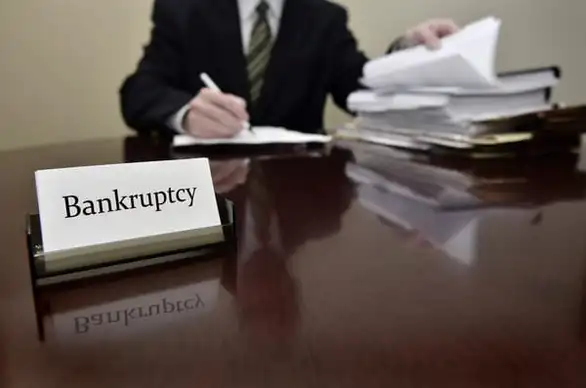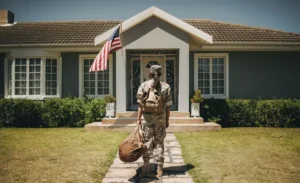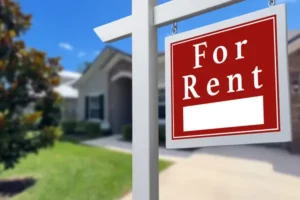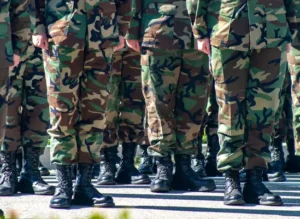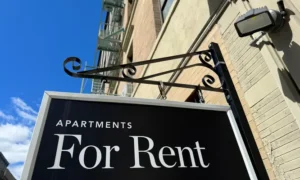Filing for bankruptcy can feel like a major financial setback, but it doesn’t necessarily prevent you from achieving homeownership with a VA loan. VA loans, which are backed by the Department of Veterans Affairs, are known for offering more lenient terms compared to conventional mortgages.
They can be a great option for veterans and active-duty service members looking to buy a home after dealing with financial challenges.
This article will walk you through how bankruptcy affects your VA loan eligibility, waiting periods, and what steps you can take to improve your chances of securing a loan.
Understanding VA Loans and Their Advantages
VA loans are specifically designed for veterans, active-duty military members, and qualifying spouses. Unlike traditional loans, VA loans require no down payment and no private mortgage insurance (PMI), making them accessible for borrowers who may have faced financial difficulties in the past. VA loans also tend to come with competitive interest rates, which can make a significant difference in your monthly mortgage payments over time.
“VA loans provide a valuable opportunity for veterans to recover financially after a bankruptcy, thanks to their flexible lending requirements,” says Sarah Jenkins, Mortgage Advisor at Valor Home Loans.
How Different Types of Bankruptcy Affect VA Loan Eligibility
There are two main types of bankruptcy that can influence your ability to get a VA loan: Chapter 7 and Chapter 13. Each has specific implications for your eligibility and the required waiting period before applying for a new mortgage.
Chapter 7 Bankruptcy
- Definition: Chapter 7, often called liquidation bankruptcy, allows for the discharge of unsecured debts after the sale of non-exempt assets.
- VA Loan Waiting Period: After filing for Chapter 7, you must typically wait two years from the date of discharge before applying for a VA loan. This waiting period provides time to rebuild credit and establish financial stability.
Chapter 13 Bankruptcy
- Definition: Chapter 13 involves creating a repayment plan to pay off debts over three to five years, allowing you to retain more of your assets.
- VA Loan Waiting Period: If you file for Chapter 13, you may qualify for a VA loan one year into your repayment plan, as long as you have made timely payments. Court approval is required to obtain a new mortgage during the repayment period.
“The VA loan program’s approach to Chapter 13 bankruptcy is one of the most borrower-friendly, allowing for quicker re-entry into the housing market compared to other loans,” explains Michael Rivera, Senior Loan Specialist at Patriot Financial Group.
Steps to Improve Credit After Bankruptcy
Rebuilding your credit is essential if you plan to apply for a VA loan after bankruptcy. Lenders will look for evidence that you have managed your finances responsibly since your bankruptcy discharge.
- Monitor Your Credit Score: After bankruptcy, keep an eye on your credit score using free tools like AnnualCreditReport.com. A score of at least 580 to 620 is generally required by most VA lenders.
- Pay Bills on Time: Consistent, on-time payments on all bills—whether utilities, rent, or new credit accounts—can help demonstrate financial stability.
- Reduce Debt: Lowering your debt-to-income (DTI) ratio can make you a more attractive borrower. Focus on paying down any remaining credit card balances.
Current Market Data and Trends for VA Loans
The housing market in 2024 presents a mixed landscape, influenced by interest rates, regional trends, and economic factors. As of October 2024, 30-year fixed VA loan rates average around 5.4%, compared to 5.7% for conventional loans. This slight difference can translate into substantial savings over the life of a mortgage, particularly for those looking to keep monthly payments manageable.
VA vs. Conventional Loan Rate Comparison (October 2024)
| Loan Type | Average Interest Rate | Down Payment Requirement | PMI Requirement |
|---|---|---|---|
| VA Loan | 5.4% | 0% | No |
| Conventional Loan | 5.7% | 5% – 20% | Yes, if < 20% |
Applying for a VA Loan After Bankruptcy
Navigating the VA loan process after bankruptcy can be easier with a clear plan in place. Here’s what you need to know:
- Gather Required Documents: To apply, you’ll need your VA Certificate of Eligibility (COE), proof of bankruptcy discharge, and evidence of stable income.
- Work with an Experienced VA Lender: Choose a lender familiar with VA loan requirements and the nuances of applying post-bankruptcy. They can help streamline the process and offer personalized advice.
- Get Pre-Approved: Pre-approval is critical for understanding your borrowing limits and demonstrating to sellers that you’re ready to buy.
Quote: “Getting pre-approved shows that you’ve done the work to recover financially after bankruptcy, making you a more credible buyer,” says Tim Hall, Loan Officer at HomeFront Lending.
Comparing VA Loans to FHA and Conventional Loans
While VA loans are often the best option for veterans after bankruptcy, it’s wise to consider other alternatives like FHA loans. Here’s a side-by-side comparison:
Post-Bankruptcy Loan Comparison
| Loan Type | Chapter 7 Waiting Period | Chapter 13 Waiting Period | Minimum Credit Score | Down Payment Requirement |
|---|---|---|---|---|
| VA Loan | 2 years | 1 year (with court approval) | 580-620 | 0% |
| FHA Loan | 2 years | 1 year (with court approval) | 500-580 | 3.5% – 10% |
| Conventional | 4 years | 2 years | 620+ | 5% – 20% |
This table highlights the differences between VA, FHA, and conventional loans when applying after bankruptcy. VA loans generally offer shorter waiting periods compared to conventional options, making them a faster route back to homeownership.
Frequently Asked Questions
Can I get a VA loan after a Chapter 7 bankruptcy?
Yes, you can apply for a VA loan two years after your Chapter 7 bankruptcy discharge.
What is the minimum credit score needed for a VA loan after bankruptcy?
Most VA lenders require a credit score between 580 and 620, but requirements vary.
Do I need court approval for a VA loan during a Chapter 13 bankruptcy?
Yes, you will need approval from the bankruptcy court to apply for a VA loan while in a Chapter 13 repayment plan.
How long do I have to wait after Chapter 13 bankruptcy to get a VA loan?
You may be eligible after one year of on-time payments during your repayment plan.
Can I refinance with a VA loan after bankruptcy?
Yes, refinancing is possible with a VA loan, as long as you meet the waiting period requirements.
Does a bankruptcy affect my VA loan interest rate?
Yes, a past bankruptcy can lead to slightly higher interest rates, but the impact is often less severe than with conventional loans.
Can I use a VA loan for a second home after bankruptcy?
VA loans are intended for primary residences, but you can use them for another primary home if you’ve restored your eligibility and sold the previous home.
What if my bankruptcy included a previous VA loan?
You may need to restore your entitlement, which could involve repaying any losses the VA covered from the defaulted loan.
Final Thoughts: Rebuilding with a VA Loan
Although filing for bankruptcy can make the journey to homeownership more challenging, VA loans offer a pathway for veterans to regain financial stability.
With shorter waiting periods, competitive rates, and more lenient credit requirements, VA loans provide an accessible option for those looking to purchase a home after bankruptcy.
By focusing on rebuilding credit and working with an experienced lender, you can position yourself for success in the housing market.

